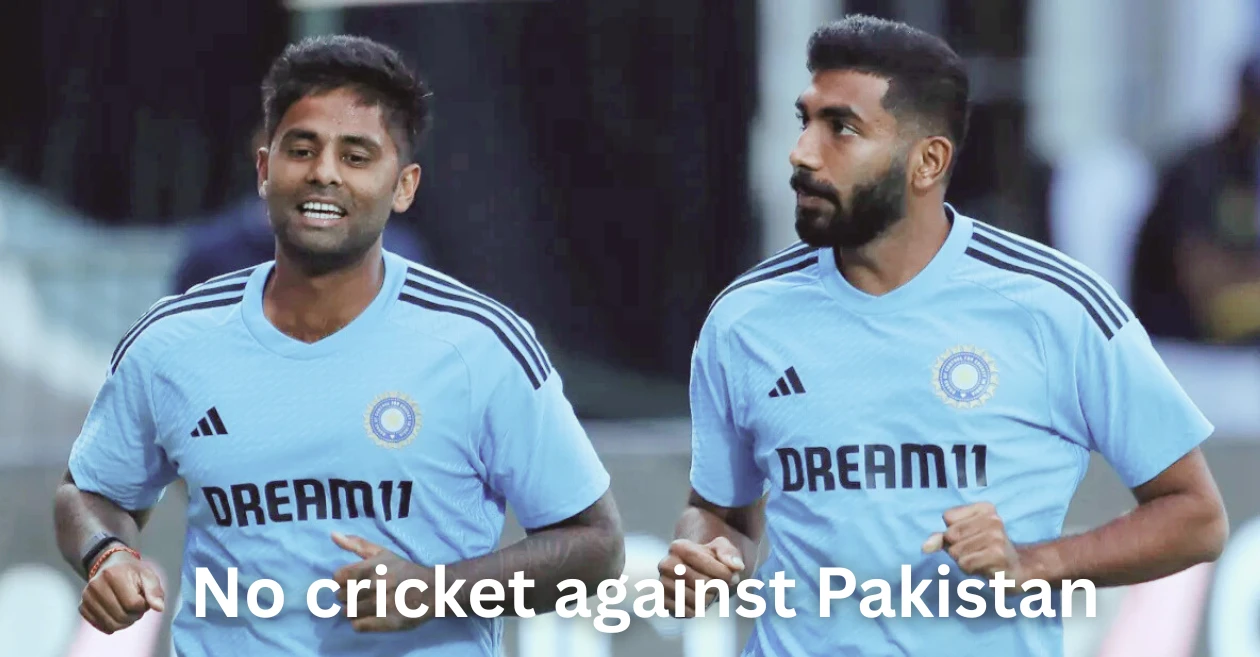As the countdown to the Asia Cup 2025 begins, anticipation is building for one of cricket’s most watched fixtures—an India vs Pakistan clash. Scheduled likely in the UAE this September, this encounter traditionally commands record-breaking viewership, jam-packed stadiums, and millions of dollars in advertising revenue. However, this year, it carries more than just sporting fervor. It stands at the intersection of politics, diplomacy, public sentiment, and national security.
Against the backdrop of heightened geopolitical tension, particularly following the Pahalgam terror attack and subsequent military operations like Operation Sindoor, India faces a pressing question: Should it engage with Pakistan in a sporting spectacle when bilateral ties remain strained and unresolved terror concerns persist?
This article outlines three powerful reasons why India should reconsider playing Pakistan in Asia Cup 2025—and why this goes far beyond cricket.
National Security and the Shadow of Terrorism
The wounds from the May 2025 Pahalgam terror attack are still raw. In an assault that claimed several lives, including civilians and paramilitary forces, the Indian government claimed irrefutable evidence linking the attack to Pakistan-based terrorist networks. Operation Sindoor, the swift military response, ended in a ceasefire—but left the country with lingering questions and grief.
To many Indians, the idea of facing Pakistan on a cricket field while the embers of such violence remain smoldering is unthinkable. It risks signaling a return to normalcy without accountability. Former Indian Army generals, diplomats, and even cricket legends have publicly echoed similar sentiments: sport cannot be insulated from politics when blood has been shed in the name of ideology.
“Any form of engagement, especially a high-profile one like cricket, is a betrayal of the soldiers guarding our borders and the victims of terror,” said a top commentator recently.
The government’s position on ‘zero tolerance for terror’ is not merely a political statement—it is a sentiment that resonates across the nation. Engaging Pakistan in cricket could be perceived as softening that stance, inadvertently normalizing relations in the absence of justice or reform. In this context, cricket loses its power as a unifying force and becomes a tool for controversy and resentment.
Political Climate and Public Sentiment: A Nation in No Mood for Compromise
In India, the India–Pakistan cricket rivalry has never been just about sport. It has been a mirror of the two countries’ complicated and often hostile relationship. But 2025 presents a political climate unlike previous years—more charged, more polarized, and more emotionally intense.
Following Operation Sindoor, relations between New Delhi and Islamabad hit a historic low. Diplomatic channels remain frozen. Cultural exchanges are on hold. There are no bilateral cricketing ties—India has refused to tour Pakistan since 2008, and the BCCI remains firm on avoiding bilateral series until the terrorism issue is addressed.
This climate has spilled onto the streets, into living rooms, and across social media. Hashtags like #NoCricketWithPakistan and #BoycottAsiaCup trend regularly. From college students to war veterans, celebrities to journalists, many voices argue that playing Pakistan is an affront to national pride and a moral contradiction.
Former cricketers like Gautam Gambhir and Harbhajan Singh have weighed in, urging the BCCI to “stand with the nation, not just sponsors.” Even politicians from across the ideological spectrum—usually divided on most issues—are unanimous in their stance against cricketing engagement with Pakistan under current circumstances.
This is not just posturing. It reflects a collective national sentiment that justice must precede jubilation, and integrity must not be sacrificed at the altar of television ratings.
Sporting Integrity at Risk: When Rivalries Become Revenue Models
No fixture draws more global attention than India vs Pakistan in cricket. Broadcasters know this. Sponsors know this. So do tournament organizers. But therein lies the problem.
In recent years, the Asia Cup—originally conceived to promote unity and regional camaraderie—has increasingly appeared to be tailored to commercial interests. The repeated structuring of groups to guarantee an India–Pakistan fixture (and potential rematch in the final) has not gone unnoticed. While this boosts viewership, it undermines sporting ethics and authenticity.
The hybrid-venue model introduced in Asia Cup 2023 and expected again in 2025 only compounds the issue. With both countries unwilling to tour each other, matches are held in neutral venues like UAE or Sri Lanka. While this may be a practical solution, it dilutes the legitimacy of a continental tournament where fairness and equality should be paramount.
Add to that the possibility of placing India and Pakistan in the same group once again for commercial leverage, and purists argue the sport is being hijacked by boardroom decisions. Is it really about cricket anymore—or about what sells best on prime-time TV?
In such an environment, India’s participation risks endorsing a model where politics, terror, and unresolved hostility are pushed aside for a temporary spike in ratings. This is not only short-sighted, but also dangerous—it sends a message that financial gain trumps moral clarity.
The Precedents: Lessons from the Past
India has walked this path before. After the 2008 Mumbai attacks, bilateral cricketing ties with Pakistan were severed for years. In 2019, following the Pulwama terror attack, India refused to play Pakistan in any bilateral tournament, including the Asia Cup.
Then too, there were calls for banning Pakistan from the World Cup or forfeiting the group-stage match. Though India played them eventually in the World Cup, the debate triggered significant introspection about the ethics of sporting diplomacy.
The difference in 2025 is that public memory is fresh, and trust is even more fragile.
The BCCI’s Dilemma: Caught Between Revenue and Responsibility
The Board of Control for Cricket in India (BCCI), arguably the most powerful cricket board in the world, is at the center of this storm. Financially, India vs Pakistan matches are a windfall. A single clash can generate more revenue than some entire series. Broadcasters, sponsors, and international stakeholders are pressuring the BCCI to ensure the clash goes ahead.
But the board faces growing criticism for placing profits above patriotism. While the BCCI has taken cautious steps—refusing to tour Pakistan, advocating for neutral venues—it now finds itself cornered. It must choose between two conflicting imperatives:
-
Honor national sentiment, and stay true to the larger political climate.
-
Or prioritize cricket’s global brand, risking backlash at home.
The coming weeks will test the BCCI’s resolve like never before.
What Could Be Done Instead?
India’s possible withdrawal or refusal to play Pakistan could prompt broader changes to the tournament format. Here are some alternative paths forward:
-
Push for group reshuffling: Avoid scheduling India vs Pakistan in group stages, unless both qualify for the final organically.
-
Make participation conditional: India could state its position clearly—no engagement unless verifiable anti-terror steps are taken by Pakistan.
-
Demand ICC/ACC reforms: Ensure future fixtures aren’t driven purely by commercial interest but are reflective of real sporting merit.
Cricket Is Not Just a Game—Not This Time
The Asia Cup 2025 will be a test—not just of cricketing skill, but of conscience, character, and conviction. At a time when national wounds are still healing, and terror-linked trauma still haunts many, India must ask itself: Is it the right time to play Pakistan?
Cricket has the power to unite. But under current conditions, this fixture threatens to divide more than it heals. Until Pakistan demonstrates tangible efforts toward curbing terror, and bilateral trust is rebuilt, sporting ties—especially high-stakes ones—may be premature and politically tone-deaf.
Sometimes, the most courageous act is not walking onto the pitch—but choosing not to.
Please check for information on the best betting sites in India – https://selectory.org/best-betting-sites/















